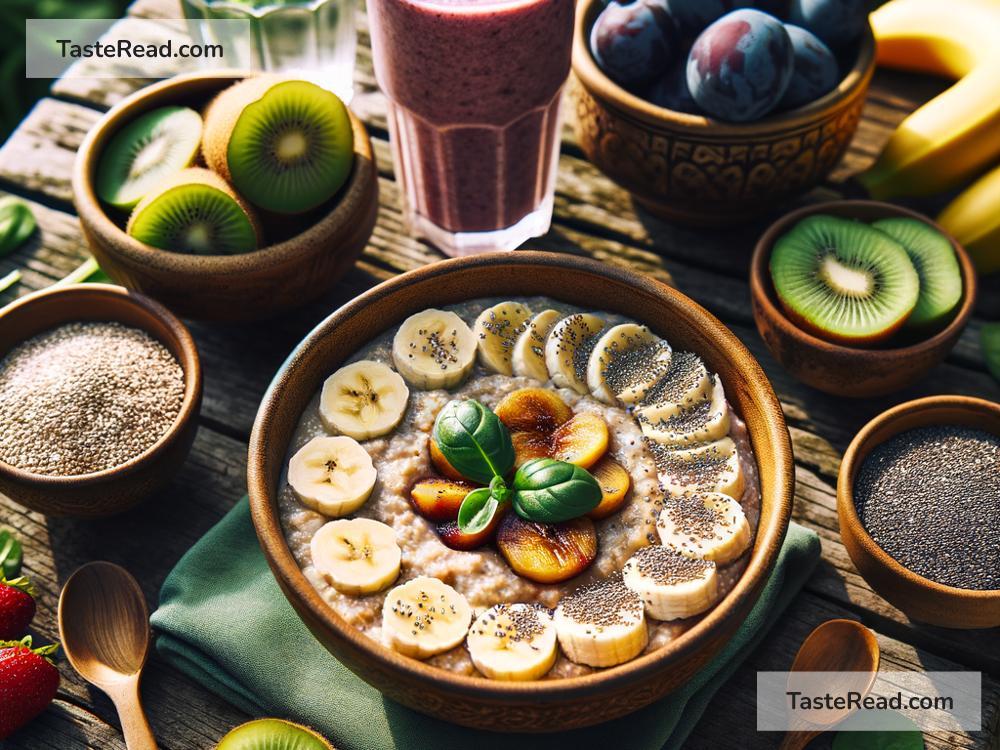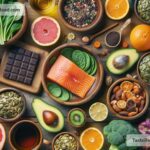Foods to Help Reduce Constipation: A Simple Guide
Constipation is a common problem that happens when bowel movements become difficult or infrequent. Many people experience it at some point in their lives, and while it’s not typically dangerous, it can cause discomfort, bloating, and frustration. Fortunately, what you eat plays a big role in keeping your digestive system healthy and helping prevent constipation. In this blog post, we’ll talk about some simple, natural foods that can help you stay regular and feel better.
Why Does Constipation Happen?
Before diving into foods that help, it’s useful to understand why constipation occurs. Most cases happen because there isn’t enough fiber or water in your diet. Fiber is important because it adds bulk to your stool, helping it move through your intestines more easily. Water keeps stool soft, making it easier to pass. Low activity levels, certain medications, stress, and ignoring the urge to go to the bathroom can also contribute to constipation.
By adjusting your diet and adding more fiber-rich and hydrating foods, you can often avoid or reduce this uncomfortable problem.
10 Foods That Help Relieve Constipation
Here are some effective foods that can make your bowel movements easier:
1. Fruits
Fruits are a fantastic source of fiber and natural sugars, which can gently encourage your digestion.
- Apples: Apples contain both insoluble and soluble fiber, especially in the skin. Eating an apple with the skin on can give your digestive system a boost.
- Pears: Similar to apples, pears are high in fiber, especially if eaten with the skin. They also contain a natural compound called sorbitol, which softens stools.
- Prunes: Prunes, or dried plums, are one of the best-known remedies for constipation. They are packed with fiber and sorbitol, making them highly effective. Drinking prune juice works too!
2. Vegetables
Vegetables are a great source of fiber, vitamins, and hydration, all of which support good digestion.
- Spinach: This green vegetable contains fiber and magnesium, a mineral that helps keep muscles in the digestive tract moving.
- Broccoli: Broccoli is rich in fiber and promotes a healthy gut. Adding it to meals helps with regular bowel movements.
- Sweet Potatoes: Sweet potatoes have natural fiber, particularly in their skin. They’re tasty and easy to prepare boiled, baked, or mashed.
3. Whole Grains
Whole grains contain more fiber than refined grains like white bread or white rice. Eating whole grains helps bulk up stool and stimulates your intestines.
- Oats: Oatmeal is gentle on the stomach and full of soluble fiber, which helps absorb water for softer stools.
- Brown Rice: Brown rice is a high-fiber alternative to white rice. It can provide the roughage your body needs to move digestion along.
- Whole-Grain Bread: Choosing whole-grain bread instead of white bread makes a significant difference, as it contains extra fiber.
4. Legumes
Legumes—such as beans, lentils, and chickpeas—are loaded with fiber and protein, making them great for maintaining digestive health.
- Black Beans: These tiny beans are rich in fiber and work wonders for keeping your gut active.
- Lentils: Lentils are one of the most versatile high-fiber foods. Add them to soups, salads, or curries for a digestion-friendly meal.
5. Nuts and Seeds
Nuts and seeds are small but mighty when it comes to fiber content.
- Chia Seeds: Chia seeds are packed with fiber and expand when mixed with liquid, helping to push things through your digestive system.
- Flaxseeds: Flaxseeds are another fiber-heavy seed and contain omega-3 fatty acids, which support gut health.
6. Probiotic Foods
Probiotics are “good bacteria” that help improve gut health and digestion. They can ease constipation by helping balance your gut.
- Yogurt: Yogurt with live active cultures promotes healthy digestion and helps regulate bowel movements.
- Kefir: Kefir is a fermented milk drink that’s loaded with probiotics. It’s great for keeping things moving in your digestive system.
7. Water and Hydrating Liquids
Though not technically food, proper hydration is key to avoiding constipation. Drinking enough water ensures your stool remains soft and easy to pass.
- Plain Water: Aim for at least 8 glasses of water a day to support digestion.
- Herbal Teas: Some herbal teas, such as chamomile or ginger tea, can have a mild laxative effect and soothe your digestive system.
Tips for Eating Well
- Start slowly: If you’re not used to eating lots of fiber, increase your intake gradually to avoid bloating or gas.
- Pair fiber with water: Always drink plenty of water when you eat high-fiber foods, as water helps fiber work effectively.
- Chew well: Take your time when eating. Proper chewing helps break food down for easier digestion.
- Stay active: Regular exercise promotes digestion by encouraging blood flow to your intestines.
When to See a Doctor
If dietary changes and hydration don’t improve constipation after several weeks, or if you experience severe pain, blood in your stool, or unexplained weight loss, it’s important to consult a doctor. Chronic constipation may indicate underlying health issues.
Conclusion
Constipation can be annoying, but adding the right foods to your diet is a natural and effective way to get things moving again. Fruits, vegetables, whole grains, legumes, nuts, seeds, probiotics, and plenty of water are your best allies in promoting healthy digestion. By making small, manageable changes to your eating habits, you can enjoy smoother, more regular bowel movements—and feel lighter and more comfortable.
Let your plate be your medicine and take control of your digestive health, one bite at a time!


